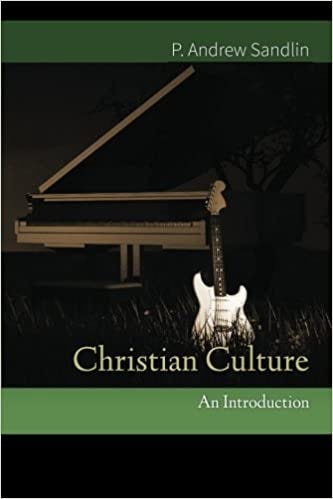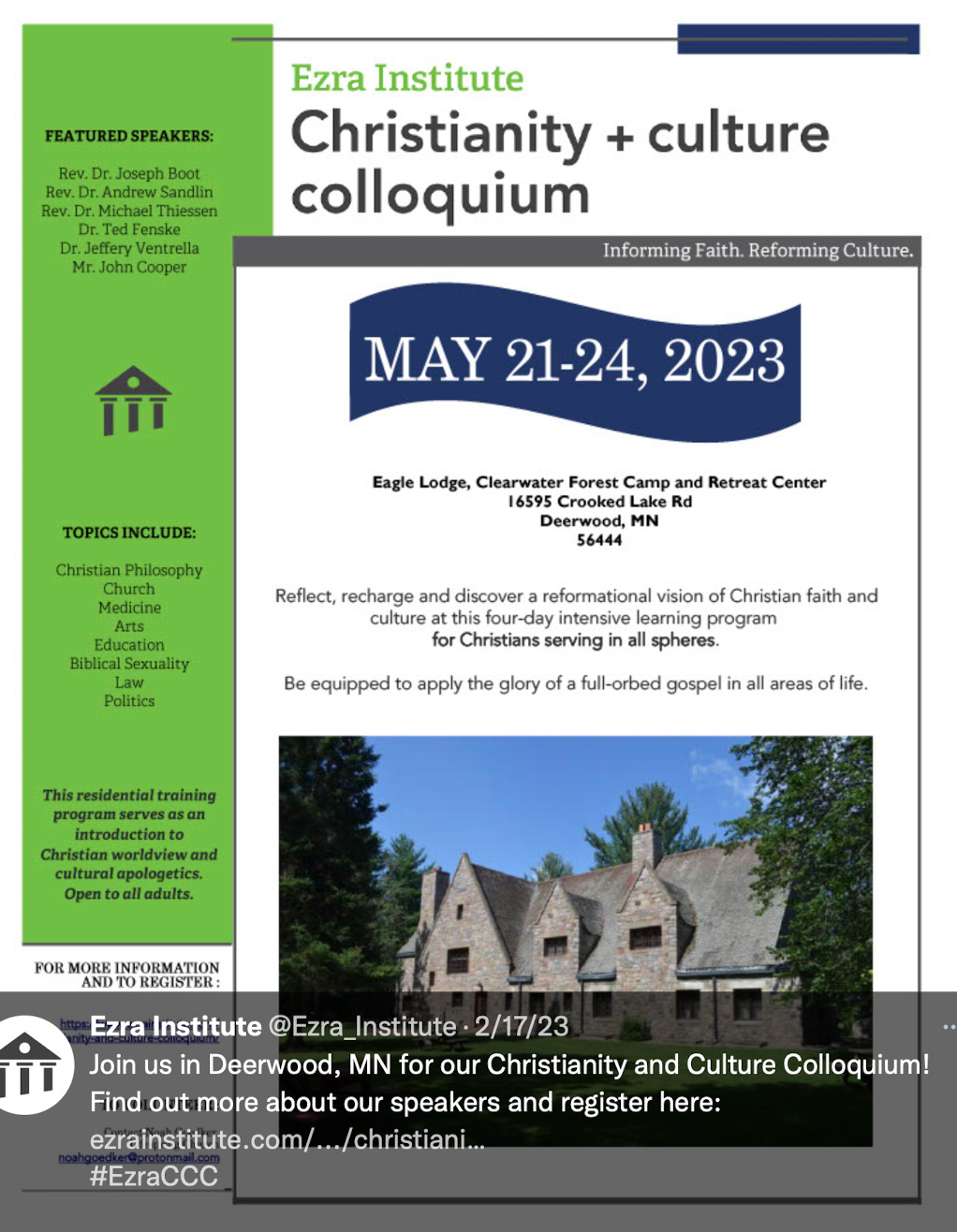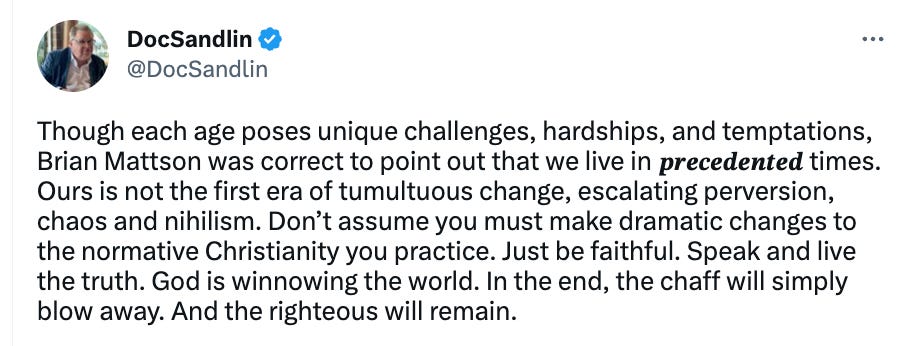Intellectuals and Other Dangerous People
The heady few can torment the ordinary many. The fact that very few of the ordinary many even know the names of the heady few is irrelevant. Never assume that whom you don’t know can’t hurt you.
[P]hilosophical concepts nurtured in the stillness of a professor’s study could destroy a civilization.
Isaiah Berlin
Dear friends and supporters:
Lately my CultureChange posts have been irregular and infrequent due to Sharon’s and my care for my nearly 90-year-old father. Please pray that when his time to depart this life arrives, the Lord takes him Home gently: “Now as for you [Abram], you shall go to your fathers in peace; you shall be buried at a good old age” (Gen. 15:15). Thank you so much for your prayer, patience, and understanding.
Anti-Intellectualism and Anti-Anti-Intellectualism
Because I have a well-deserved reputation for unrelenting anti-anti-intellectualism, one might surmise that I have a generally high regard for intellectuals. I do not. Some of the most dangerous people in the world are intellectuals, and they have been since ancient times (think only of Plato and Aristotle). They have been particularly pernicious since the age of ideology, the 18th century. The work products of intellectuals like René Descartes, Immanuel Kant, Georg W. F. Hegel, Karl Marx, Friedrich Nietzsche, John-Paul Sartre, and Jacques Derrida have wrecked the world as much they’ve occasionally benefitted it. The disproportionate influence of intellectuals in the modern world means that the heady few can torment the ordinary many. The fact that very few of the ordinary many even know the names of heady few is irrelevant. Never assume that whom you don’t know can’t hurt you.
Defining Intellectuals
We all seem to know what an intellectual is, but defining one more precisely isn’t easy. Perhaps the best we can do is revealed in the famous question of how to define pornography: “I know it when I see it.” We can know intellectualism even if we can’t precisely define it.
Richard Hofstadter’s classic book Anti-Intellectualism in American Life describes (rather than defines) intellectuals as those who see ideas and thoughts as matters for play: “[T]he intellectual relishes the play of the mind for its own sake, and finds in it one of the major values in life.” Ideas aren’t merely instrumental, but are worthy of study (and play) and consideration as ends in themselves.
On the other hand, I once heard an interview with the late Robert Bork in which he wryly defined intellectuals as “people who manipulate symbols for a living.”
Over the years, I’ve come to believe that perhaps the chief mark of intellectuals is both the capacity and propensity for abstractions. Most people spend their day thinking about what they’re going to eat, how to do their job, how to rear their children, where to take their vacation, and so forth.
In contrast, intellectuals think about things like the social incentives of food, how a particular kind of economic system affects the employees of a culture, how the idea that parents have authority in the lives of children ever developed, why humans need vacations at all, and so on.
Not All Intellectuals Are Dangerous
The fact that so many intellectuals pose such danger to our culture doesn’t mean all intellectuals are dangerous. Christian intellectuals like Augustine, Aquinas, Kuyper, Dooyeweerd, and Frame have been a boon to the church and world. My colleague Brian Mattson and I and a number of other CCL figures are what many would consider intellectuals, and we’re in stark disagreement with the dominant intellectuals of our time. In fact, we’re adversarial intellectuals, combatting our society’s widespread secular and neopagan — and pseudo “Christian” — intellectualism. It might just be that Solomon and Daniel and the apostle Paul were something very close to intellectuals in the biblical world, and the surrender of their God-given intelligence to him propelled his kingdom in their lifetimes. We might say they were dangerous too — dangerous to Satan and his kingdom.
But intellectuals from Plato to Noam Chomsky have been overwhelmingly ungodly and anti-Christian, and in the rest of this article when I use the term, it’s just this class I denote, not consistently Christian intellectuals, more of whom we desperately need.
Three books that have been especially helpful to me in assessing the danger of intellectuals are John Carey’s Intellectuals and the Masses, Paul’s Johnson’s Intellectuals, and Thomas Sowell’s Intellectuals And Society, an especially poignant work three of whose chief observations I’ll mention here to show the danger intellectuals pose to the world.
Privileged Knowledge
First, Sowell contends that since intellectuals hold an exalted view of ideas, they embrace a particular view of knowledge. For one thing, they privilege the kind of knowledge they have and others don’t. They deem their abstract (and often spurious) knowledge of God, human nature, historical causation, politics, economics, and education far superior to the knowledge of the common herd — how to build homes, fly airplanes, heal diabetes, repair cars, or write computer code. This latter class of highly practical knowledge that makes our world a much safer, more prosperous, and more livable place might be necessary but is far inferior to the knowledge of whether “gender” is fluid, why “social justice” must be imposed on society, and how the “profit motive” can be cleansed from ordinarily greedy humans. The common herd spends little time (and frankly is incapable of) pondering these exhilarating ideas, so intellectuals have a near monopoly on this cognitive abstraction, which becomes to them the all-important knowledge.
For another thing, Sowell observes, intellectuals have a particular view of the dispersal of knowledge. Most people historically have believed that knowledge is parceled out widely over the population, including the population of our ancestors. It’s what G. K. Chesterton once called “the democracy of the dead.” This is why tradition has been so important in all human societies. A single person, no matter how intelligent, can’t possess much knowledge, but he does have access to a vast repository of knowledge across humanity, both dead and alive. Progress can happen historically, precisely because knowledge grows little by little in human experience. The few are funded by the knowledge of the many.
It just so happens that intellectuals tend to resent this inherited and widely diffuse knowledge. They prefer the knowledge they uniquely possess and are quick to dismiss or negate knowledge accumulated through human experience over the ages. They are intellectually gifted, and their own unique knowledge should trump every other kind. Sowell terms this attitude “notions versus knowledge.” Intellectuals have notions about the way the world works or, rather, the way it should work, and aren’t particularly interested in genuine knowledge arrived at over long periods by wide human experience. They greatly prefer their own “articulated rationality,” their capacity to communicate via complex rhetoric of which the masses are incapable.
This view of their own privileged knowledge is dangerous, because, impressing many commoners with their own obvious intellectual and rhetorical gifts, they wrestle themselves into positions of cultural prominence that situates them as “surrogate decision-makers,” the gifted, heady ones, confident to make decisions about society. The common folk, alternatively, simply rely on intuitive knowledge humanity shares as a result of widespread experience they don’t assume entitles them to lead society.
In sharp distinction, the poorly tested, highfalutin theories of intellectuals unrelated to vastly dispersed historical knowledge become a substitute for wisdom. The “dictatorship of the proletariat,” “racial reparations,” and “gender fluidity” are prime examples of this intellectualist catastrophe.
How Christians lost Christian culture, the high price we've paid for losing it, where we stand today in our own culture, and finally what we can (and must) do to create Christian culture today and tomorrow.
Get the book here.
Abstractions Versus Reality
Second, I noted above intellectuals are marked by a capacity for abstraction. There’s nothing inherently wrong for this. Abstract thinking is one of God’s gifts of the human mind. Unfortunately, intellectuals tend to privilege this thinking, and often push it so far that they oppose it to reality — in Sowell’s words, “optional reality.”
Reality often resists intellectuals’ views of what it should be, so they must create their own. He lists as one of many examples NY Times correspondent Walter Duranty, who reported from the Soviet Union in the 1930s that there was no widespread famine or actual starvation in the People’s Paradise, despite the fact that six million people had died of famine within there years and anybody there could have known who wanted to. Duranty was later awarded the Pulitzer Prize for his tragically spurious but highly intellectualist reporting.
In our own time, Judith Butler, world-famous professor at Cal Berkeley, has introduced a generation of vanguard secularist thinkers to “gender” severed from the body:
… Butler goes [so] far as to argue that gender, as an objective natural thing, does not exist: “Gender reality is performative which means, quite simply, that it is real only to the extent that it is performed” …. Gender, according to Butler, is by no means tied to material bodily facts but is solely and completely a social construction, a fiction, one that, therefore, is open to change and contestation …. By illustrating the artificial, conventional, and historical nature of gender construction, Butler attempts to critique the assumptions of normative heterosexuality: those punitive rules (social, familial, and legal) that force us to conform to hegemonic, heterosexual standards for identity. (emphases supplied)
This radically constructivist view of reality provides a “safe space” for “gender affirmation surgery” on teenagers to which their parents may not legally object, despite the fact teenagers know almost nothing about sex or sexuality and are the least qualified to make definitive decisions about it. This self-multination which as recently as a decade ago would’ve been deemed child abuse, is a perhaps the most dangerous outworking of intellectual abstractionism to date as it pertains to the individual.
Sowell argues that since the ideas of intellectuals are inherently insulated from the verification and falsification of reality, their failure in the real world can always be attributed to inconsistent application of the idea. A horde of intellectuals in the first half of the 20th century claimed that, despite the facts of the horrific effect of Marxism in the Soviet Union, Marxism itself is not a failure, because it has not been properly applied. When a person dies as a result of an engineer's faulty ideas, he might be legally sued or criminally charged. If millions of people die as a result of an intellectual’s faulty ideas, it’s the implementation of his ideas that’s considered faulty.
The Moral Arbiters
Third, and finally, because intellectuals privilege their own unique knowledge, they also privilege themselves, assuming they should be society's ordering elite, the “self-appointed vanguard,” in Sowell’s words. This notion is at least as old as Plato’s philosopher-kings, but it is rife in our world. They deem the unwashed masses greedy, self-centered, stupid, and irrelevant. Intellectuals, by contrast, are brilliant, wise, disinterested, and above all, humble — just ask them.
Given this assumption, they consider themselves the moral arbiters of society. In the modern world, the great sins that must be washed away are capitalism, racism, sexism, and heteronormativity. It’s the great calling of intellectuals to arrange society so that these views are marginalized, penalized, and in some cases criminalized. The wealthy must be forced to surrender their property. Whites must be forced to pay reparations to blacks. Men must be forced to bow to the leadership roles of women, even if the latter are less qualified. Heterosexuals must not merely accept but also approve of and endorse homosexuals — or suffer social cancelation.
In this crusade, intellectuals create what Sowell calls “moral mascots,” individual types that represent the oppressed classes (women, blacks, homosexuals, transexuals) that must be coercively liberated from the enslaving unenlightened — from ordinary Americans.
In this way, intellectuals become the enforcers of the new legal code. The West's legal code was influenced largely by Christian notions of objective law, deriving from the Bible and creation. This seems all too retrogressive and oppressive to modern intellectuals, so they’ve substituted their own law whose violation requires punishment: tolerance, affirmation, and non-judgmentalism. Intellectuals are antinomian only with reference to God’s law. They are vigorously pronomian in terms of their own law they wish to impose on a recalcitrant society. Sowell writes of the connection between intellectuals’ view of their own knowledge and their self-confidence as society’s moral arbiters:
Although intellectuals exist in the first place because they supposedly think better or more knowledgeably than other people, in reality their mental superiority is a superiority within a particular narrow brand out of the vast spectrum of human capabilities. Intellectuals are often extraordinary within their own specialties — but so too are chess grandmasters, musical prodigies and many others. The difference is that these other exceptional people seldom imagine that their extraordinary talents in a particular endeavor entitle them to judge, pontificate to, or direct the whole society.
Conclusion
Ideas, as Richard Weaver once famously wrote, have consequences, but intellectuals’ would not be particularly dangerous consequences were not intellectuals so frequently positioned as society’s leaders, particularly in higher education, the media, and major think tanks. Their ideas are dangerous because they’re always poised to be implemented in culture. Ours is a time that favors the cognitive elite. This might sound counterintuitive, since the ubiquity of social media and the instantaneous transmission of knowledge to the world would seem to democratize knowledge.
But the democratization of knowledge does not extend to culturally influential institutions like think tanks, media, and higher education, each of whose influence is disproportionate to its size. The knowledge within these institutions is overwhelmingly the privileged knowledge of intellectuals, or those directly influenced by them.
A solution to this danger is not to de-privilege all intellectuals, but to support adversarial intellectuals who can go toe to toe with the secular and neopagan intellectuals most prominent in the modern world. We need good ideas to drive out bad ideas.
A full-orbed Christianity, a Christian worldview championed by Christian intellectuals, is precisely an instrument for driving out bad ideas.
Will you consider a tax-deductible donation to CCL via PayPal or Venmo? Or mail a check to CCL, Box 100, Coulterville, CA 95311. God uses you to keep us going — and expanding.
Yours for Christian intellectuals,
Founder & President, Center for Cultural Leadership
Meet Me in Minnesota
Register here.
Tweet of the Week
Coming Soon From CCL:
More great stuff:
The Center for Cultural Leadership site is here.
My Amazon author page (print and digital) is here.
My I-Tunes sermons, lectures and podcasts are here.
You can find my sermons and lectures at my YouTube channel.
Sign up to get my blog updates here.
Here’s my Twitter feed.
If you want to get the free exclusive hard copy publication Christian Culture, please send me a Facebook private message.
The CCL phone number is 831-420-7230.
The mailing address is:
Center for Cultural Leadership
P. O. Box 100
Coulterville, CA 95311









